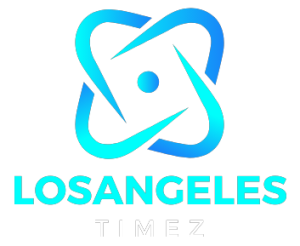What is Political Theory? Key Concepts in Political Theory
What is Political Theory
Political theory isn’t just about memorizing policies or politicians. It’s the intellectual engine that drives how we understand governments and societies. Political theory is a multifaceted field that delves into the complexities of governance, power dynamics, and societal organization. It provides a framework for understanding the fundamental questions surrounding political systems, including the distribution of power, the legitimacy of authority, and the principles of justice and equality. Rooted in philosophy and social science, political theory offers valuable insights into the workings of governments and informs decision-making processes at both theoretical and practical levels.
Introduction to Political Theory
Political theory serves as the cornerstone of modern political discourse, offering a lens through which we can analyze and critique existing political systems while envisioning alternative models. At its core, political theory seeks to understand the dynamics of authority and governance within societies and to explore the principles that underpin them.
Origins of Political Theory
The roots of political theory can be traced back to ancient civilizations such as Greece, where thinkers like Plato and Aristotle laid the groundwork for the discipline. These early philosophers pondered questions of justice, the nature of the state, and the ideal form of government, laying the foundation for centuries of political thought to come. Throughout history, political theory has evolved, incorporating influences from various philosophical traditions and historical contexts. Also, read about What Does Woke Mean in Politics
Key Concepts in Political Theory
Central to political theory are fundamental concepts such as sovereignty, power, justice, and equality. These concepts serve as the building blocks of political discourse, providing a framework for analyzing and understanding political phenomena. Sovereignty, for example, refers to the supreme authority within a territory, while power encompasses the ability to influence and control others. Justice and equality are core principles that guide our understanding of fairness and social order within societies.
Schools of Thought in Political Theory
Political theory encompasses a diverse range of perspectives, each offering unique insights into governance and society. Liberalism, for instance, emphasizes individual rights and freedoms, advocating for limited government intervention in personal affairs. Conservatism, on the other hand, prioritizes tradition and stability, advocating for gradual change and the preservation of existing institutions. Socialism and Marxism critique capitalism and advocate for collective ownership and equality, while feminism examines power dynamics through the lens of gender and strives for gender equality.

Evolution and Development of Political Theory
Over centuries, political theory has evolved in response to changes in societal values, technological advancements, and geopolitical shifts. From the classical period to the Enlightenment era and into contemporary times, political theorists have continued to refine and expand upon existing ideas, responding to the challenges and complexities of their respective epochs. The evolution of political theory reflects the evolving nature of governance and society itself. Discover more about What Is Fracking in Politics
Application of Political Theory in Practice
Political theory informs practical decision-making processes, including policy formation, governance models, and international relations. By providing frameworks for understanding political phenomena, political theory helps policymakers navigate complex issues and make informed choices that align with societal values and goals. For example, theories of democracy and representation inform electoral systems and political institutions, while theories of justice influence policies related to redistribution and social welfare.
Critiques and Challenges to Political Theory
Despite its significance, political theory is not without its critics. Cultural relativism challenges the universality of political principles, arguing that political values and norms are culturally contingent and context-dependent. Postmodernism questions the existence of objective truths, suggesting that political theory is inherently subjective and shaped by power dynamics. Globalization presents new challenges to traditional notions of sovereignty and statehood, prompting theorists to reconsider established paradigms and adapt to an increasingly interconnected world.

Interdisciplinary Approaches to Political Theory
Political theory intersects with various disciplines, including political economy, sociology, philosophy, and psychology. Interdisciplinary approaches enrich our understanding of political phenomena by incorporating insights from diverse fields and fostering cross-disciplinary dialogue and collaboration. For example, political economy examines the relationship between politics and economics, while sociology explores the role of social structures and institutions in shaping political behavior.
Conclusion
In conclusion, political theory is a dynamic and multidisciplinary field that offers valuable insights into governance, power dynamics, and societal organization. By exploring the origins, key concepts, schools of thought, and practical applications of political theory, we gain valuable insights into the complexities of governance and society.
FAQs:
What role does political theory play in shaping government policies?
Political theory provides the intellectual groundwork for policymakers to formulate and justify policies that align with societal values and principles.
How has globalization impacted political theory?
Globalization has challenged traditional notions of sovereignty and statehood, prompting political theorists to reconsider established paradigms and adapt to an increasingly interconnected world.
Can political theory provide solutions to contemporary political challenges? While political theory offers valuable insights into political phenomena, finding solutions to contemporary challenges often requires interdisciplinary approaches and pragmatic considerations.
How do different schools of thought within political theory influence policymaking?
Different schools of thought advocate for distinct approaches to governance and policy, influencing the priorities and decisions of policymakers depending on prevailing ideological trends.
What role do ethical considerations play in political theory?
Ethical considerations are central to political theory, as theorists grapple with questions of justice, equality, and the moral foundations of political authority and governance.
